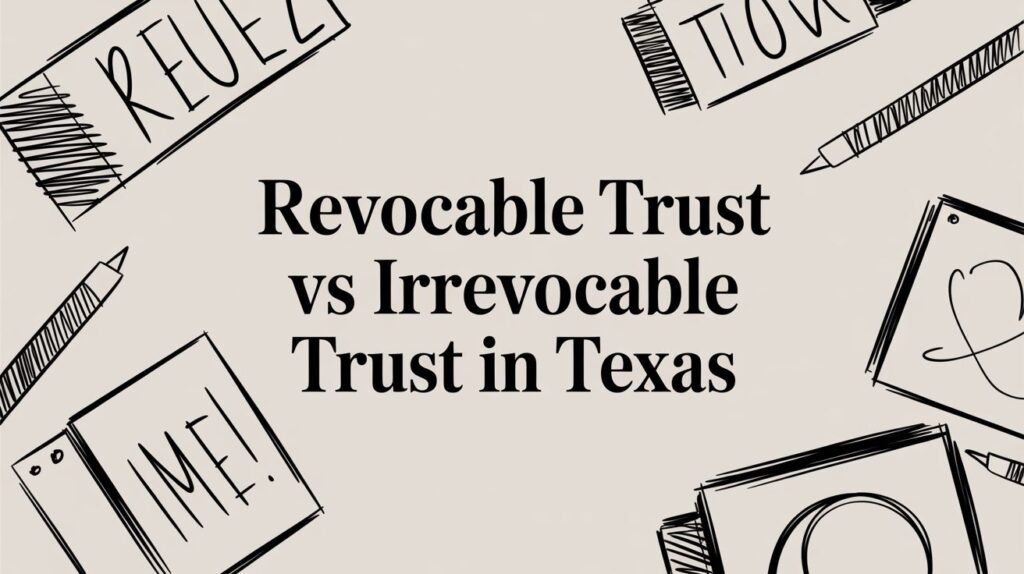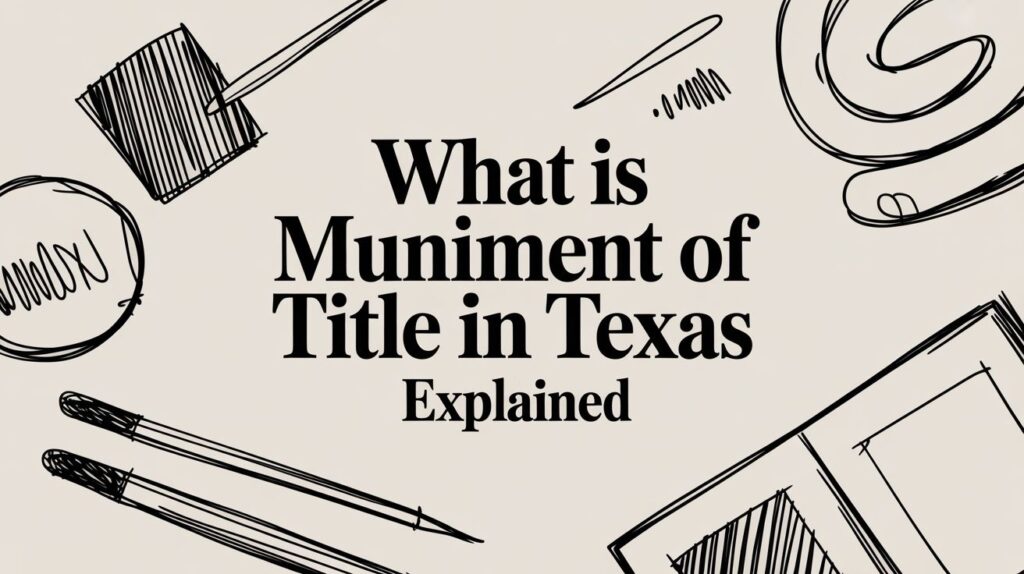If you’re handling a loved one’s estate and wondering whether a will is admissible to probate under Texas law, you’re not alone.Probate laws in Texas can be a maze of technical requirements, formal procedures, and unexpected curveballs. But understanding what makes a will legally valid—and therefore admissible—can make the probate process far smoother and less stressful.
This article will walk you through exactly how Texas law views wills, what makes them admissible to probate, and why witnesses and notarization play such a crucial role. We’ll dive into real-world examples, explain the impact of small mistakes, and provide practical tips to ensure your loved one’s wishes are honored without unnecessary delays or courtroom battles.
Let’s break it all down, using a mix of clear legal analysis, engaging storytelling, and digestible details that actually matter to families dealing with probate in Texas.

What Does It Mean for a Will to Be “Admissible to Probate” in Texas?
To put it simply, if a will is admissible to probate under Texas law, it means the probate court accepts the document as valid and enforceable. This acceptance allows the court to begin the legal process of transferring property and honoring the decedent’s wishes.
But just because someone writes a document and calls it their “last will and testament” doesn’t make it legally binding. Texas has strict requirements for a will to be considered valid. These requirements include who can make a will, how it must be signed, whether it needs witnesses, and, in some cases, whether it must be notarized.
Why Probate Courts Scrutinize Wills
Texas courts are careful with wills because they serve as the final expression of a person’s property distribution. If the court admits an invalid will, it could lead to family disputes, misallocated assets, or violations of a decedent’s true intent. That’s why the process is so meticulous—and why understanding the rules up front is critical.
Who Can Make a Valid Will in Texas?
Before we even get to witnesses and notarization, Texas law defines who is eligible to create a legally valid will. According to the Texas Estates Code:
- The testator (the person making the will) must be at least 18 years old, or legally married, or serving in the armed forces.
- The testator must be of sound mind at the time of execution. This means they understand what they’re doing and the consequences of their choices.
- The will must reflect the testator’s intent to make a final disposition of their property.
If those conditions aren’t met, the will is not admissible to probate under Texas law, no matter how carefully it was written.
The Two Types of Wills Admissible in Texas Probate Courts
Texas recognizes two main types of wills that can be admitted to probate: attested wills (which are typed and witnessed) and holographic wills (which are handwritten and unwitnessed). Each type has specific legal requirements.
Attested (Formal) Wills
An attested will is a typed document signed by the testator in the presence of at least two credible witnesses. These witnesses must also sign the will. If this format is followed, the will is presumed valid, and the court is more likely to admit it quickly—especially if it is self-proved (more on that later).
This is the most common and most secure method for ensuring that a will is admissible to probate under Texas law.
Holographic Wills
A holographic will is entirely handwritten by the testator, signed, and dated. No witnesses are required. However, proving the authenticity of the handwriting can delay the probate process. Two people may need to testify that the handwriting matches other known documents from the deceased.
Texas does allow holographic wills, but they come with risks. A single misplaced word or confusing sentence can spark legal disputes or give the judge reason to deny the will.

Why Witnesses Matter So Much
One of the biggest reasons a will may not be admitted to probate is the lack of credible witnesses. Texas law requires two credible witnesses for an attested will, and their role is more important than most people realize.
Who Counts as a Credible Witness?
Under Texas law, a credible witness is:
- At least 14 years old
- Not a named beneficiary under the will (if they are, their gift may be invalidated unless specific exceptions apply)
- Present when the testator signs the will (or acknowledges it)
In short, you can’t just grab anyone off the street. If the witnesses don’t meet the legal criteria, the will may be declared invalid and therefore not admissible to probate under Texas law.
Real-World Example: The Invalid Witness Problem
Let’s look at Paul. He drafted a clean, typed will, leaving his modest estate to his two adult children. But he asked his neighbor—who happened to be a named beneficiary—and the neighbor’s 12-year-old daughter to witness it. After Paul’s death, the court rejected the will because one witness was underage and the other stood to benefit. Paul’s estate had to go through intestate succession, splitting the estate differently than he intended.
The Power of Self-Proving Affidavits
Now let’s talk about notarization—specifically, how it helps make a will self-proving. In Texas, a self-proving affidavit is a notarized statement attached to the will that affirms the testator and witnesses signed the document willingly and met all legal requirements.
This notarization isn’t required for the will to be valid—but it does make the probate process faster and easier.
Why Self-Proving Wills Matter
Without a self-proving affidavit, the court may require the witnesses to appear in person or provide sworn statements. That can be tricky if the witnesses have moved, passed away, or can’t be located. A self-proving will skips that step, allowing the court to immediately accept it as admissible to probate under Texas law.
How to Add a Self-Proving Affidavit
The affidavit is usually added at the end of the will and signed in front of a notary by both the testator and the witnesses. This extra step offers peace of mind that the will won’t get delayed or rejected during probate.
What Happens When a Will Is Not Admissible?
When a will is not admissible to probate under Texas law, the decedent’s estate is treated as if no will exists. That means the court follows Texas intestacy laws, which distribute the estate based on family relationships, not personal wishes.
This can result in unintended consequences:
- A distant relative could inherit instead of a close friend.
- Stepchildren or unmarried partners may be completely left out.
- Family conflict may increase over property and money.
In many cases, the result is heartbreak and costly litigation that could’ve been avoided with a properly executed, admissible will.
Real Case Study: The Will That Couldn’t Be Used
Consider the story of Denise. She wrote a will leaving her assets to her long-term partner, with whom she had lived for 20 years. But she didn’t use witnesses or a self-proving affidavit, and the will wasn’t fully handwritten—it was typed and only partially completed in pen.
When she passed, the court ruled the will invalid because it didn’t meet the requirements of either an attested or holographic will. Denise’s partner received nothing. Her estranged cousins, who hadn’t spoken to her in decades, inherited everything under Texas intestacy laws.
This is why the small details—witnesses and notarization—matter so much when determining whether a will is admissible to probate under Texas law.
Filing the Will and Beginning the Probate Process
Once you have a valid will in hand, it must be filed with the proper probate court in the county where the decedent resided. In Texas, you must file the will within four years of the person’s death.
If the will is valid, self-proving, and filed properly, the court will issue letters testamentary, officially giving the executor authority to manage the estate.
The Probate Process at a Glance
- File an application for probate with the court
- Attend a hearing to admit the will and appoint an executor
- Notify beneficiaries and creditors
- Inventory and appraise estate assets
- Pay debts and taxes
- Distribute remaining assets according to the will

Each of these steps depends on having a will that the court deems admissible.
Special Cases: Lost Wills, Multiple Wills, and Contests
Let’s look at some curveballs. Even if a will is admissible to probate under Texas law, challenges can arise when:
- The original will is lost
- Multiple versions exist
- Heirs contest the will’s validity
Lost or Destroyed Wills
Texas allows a copy of a will to be admitted only if the original was lost or destroyed without intent to revoke. But this requires witness testimony and strong evidence. Without that, the court may reject the will entirely.
Multiple Wills
If multiple wills exist, the most recent one generally prevails—assuming it meets the legal standards. That’s why testators should revoke old wills and clearly state which document is their final version.
Contested Wills
Even a will that appears valid can be contested on grounds like:
- Lack of capacity
- Undue influence
- Fraud
- Improper execution
Having proper witnesses, notarization, and clear language dramatically lowers the odds of a successful challenge.
How to Make Sure Your Will Is Admissible in Texas
Here’s a checklist to make sure your will doesn’t get rejected by a probate court in Texas:
- Clearly label it your “Last Will and Testament”
- Include your full name, date, and signature
- Sign the will in the presence of two credible witnesses
- Have your witnesses sign it in your presence
- Avoid using beneficiaries as witnesses
- Keep the will in a safe, accessible place (not a locked safe deposit box!)
- Add a self-proving affidavit and get it notarized

Final Thoughts: Why Witnesses and Notarization Matter in Texas Probate
When it comes to probate, little mistakes can create big problems. While Texas law allows for flexibility—like handwritten wills—it also demands attention to detail. To ensure that a will is admissible to probate under Texas law, you must follow specific rules about signatures, witnesses, and notarization.
Taking the time to prepare a properly executed will helps protect your legacy, prevent family conflict, and ensure your wishes are honored. If you’re unsure about the details, consult with a Texas probate attorney. The cost of doing it right now is nothing compared to the cost of fixing it later.
Because when your final words are on the line, you want to make sure the court—and your loved ones—can hear them loud and clear.








